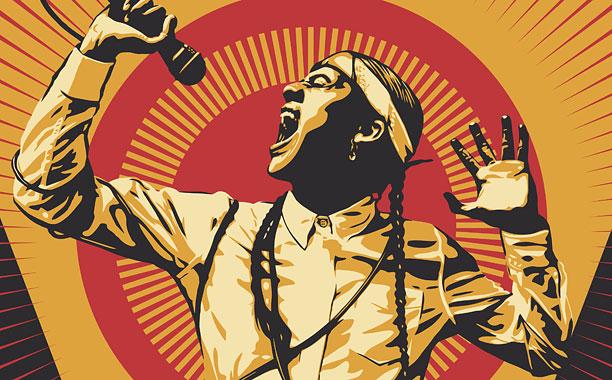Please join us at the Center for a lunchtime discussion titled “From Red Power to Hip Hop: The Urban Indigenous Experience in Postwar America.” Indigenous people and urban spaces are often rendered incompatible in both historical and contemporary scholarship. Along this line of thinking, Native people are “pre-modern” while cities are “modern,” thus Native people exist outside of modernity. And yet, they have always been in cities and engaged with urban culture. They were influenced by and helped shape urban culture for the last several decades in significant ways. Spanning the late 20th and early 21st centuries, this talk explores the links between the Red Power movement and the most significant cultural movement since that time: the emergence of Hip Hop in Indigenous North America. Two questions frame my talk. What role did urban culture play in the shaping of the Red Power movement? What is the link between the Red Power movement and Indigenous Hip Hop today? Using Critical Indigenous Studies frameworks, this talk argues that Native people, long fighting the colonial baggage of invisibility, have used urban spaces and cultures to help assert their humanity as modern Indigenous people in postwar America.
 Kyle T. Mays (Black/Saginaw Chippewa) is a transdisciplinary scholar of modern U.S. history, urban history, indigenous studies, and comparative ethnic studies. As a Postdoctoral Fellow in the Department of History at UNC-Chapel Hill, he is currently working on two projects. The first is a revised version of his dissertation, titled Indigenous Detroit: Indigeneity, Race, and Gender in the Construction of the Modern Motor City, which analyzes the role of indigeneity in the construction of 20th century Detroit. The second is a book-length manuscript titled Hip Hop Beats, Indigenous Rhymes: Modernity and Hip Hop in Indigenous North America, which is currently under contract with SUNY Press.
Kyle T. Mays (Black/Saginaw Chippewa) is a transdisciplinary scholar of modern U.S. history, urban history, indigenous studies, and comparative ethnic studies. As a Postdoctoral Fellow in the Department of History at UNC-Chapel Hill, he is currently working on two projects. The first is a revised version of his dissertation, titled Indigenous Detroit: Indigeneity, Race, and Gender in the Construction of the Modern Motor City, which analyzes the role of indigeneity in the construction of 20th century Detroit. The second is a book-length manuscript titled Hip Hop Beats, Indigenous Rhymes: Modernity and Hip Hop in Indigenous North America, which is currently under contract with SUNY Press.
This event is free and open to the public, and light refreshments will be served. Please RSVP to pathorn@unc.edu.

